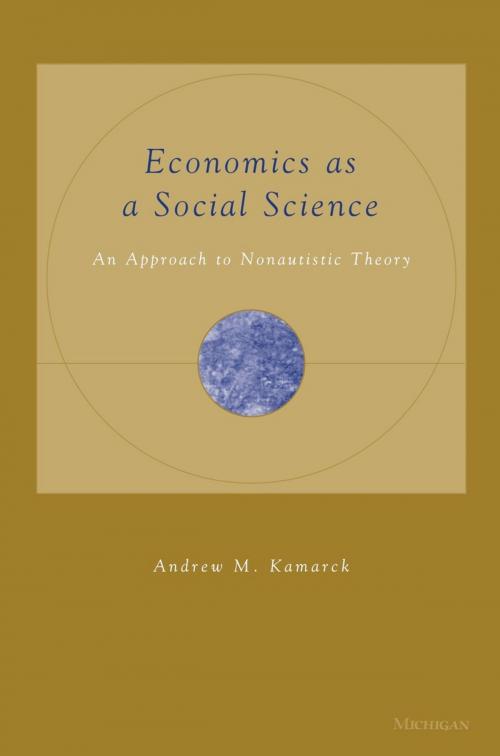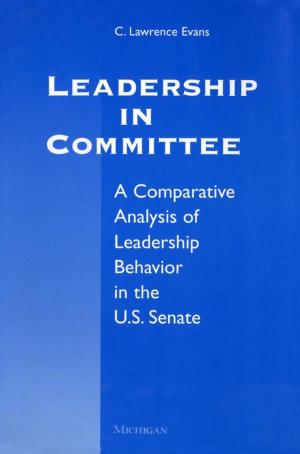Economics as a Social Science
An Approach to Nonautistic Theory
Business & Finance, Economics, Theory of Economics| Author: | Andrew M. Kamarck | ISBN: | 9780472022021 |
| Publisher: | University of Michigan Press | Publication: | April 21, 2009 |
| Imprint: | University of Michigan Press | Language: | English |
| Author: | Andrew M. Kamarck |
| ISBN: | 9780472022021 |
| Publisher: | University of Michigan Press |
| Publication: | April 21, 2009 |
| Imprint: | University of Michigan Press |
| Language: | English |
Economics as a Social Science is a highly readable critique of economic theory, based on a wide range of research, that endeavors to restore economics to its proper role as a social science. Contrary to conventional economic theory, which assumes that people have no free will, this book instead bases economics on the realistic assumption that human beings can choose; that we are complex beings affected by emotion, custom, habit, and reason; and that our behavior varies with circumstances and times. It embraces the findings of history, psychology, and other social sciences and the insights from great literature on human behavior as opposed to the rigidity set by mathematical axioms that define how economics is understood and practiced today.
Andrew M. Kamarck demonstrates that only rough accuracy is attainable in economic measurement, and that understanding an economy requires knowledge from other disciplines. The canonical hypotheses of economics (perfect rationality, self-interest, equilibrium) are shown to be inadequate (and in the case of "equilibrium" to be counterproductive to understanding the forces that dominate the economy), and more satisfactory assumptions provided. The market is shown to work imperfectly and to require appropriate institutions to perform its function reasonably well. Further, Kamarck argues that self-interest does not always lead to helping the general interest.
Economics as a Social Science examines and revises the fundamental assumptions of economics. Because it avoids jargon and explains terms carefully, it will be of interest to economics majors as well as to graduate students of economics and other social sciences, and social scientists working in government and the private sector.
Andrew M. Kamarck is former Director, Economic Development Institute, the World Bank.
Economics as a Social Science is a highly readable critique of economic theory, based on a wide range of research, that endeavors to restore economics to its proper role as a social science. Contrary to conventional economic theory, which assumes that people have no free will, this book instead bases economics on the realistic assumption that human beings can choose; that we are complex beings affected by emotion, custom, habit, and reason; and that our behavior varies with circumstances and times. It embraces the findings of history, psychology, and other social sciences and the insights from great literature on human behavior as opposed to the rigidity set by mathematical axioms that define how economics is understood and practiced today.
Andrew M. Kamarck demonstrates that only rough accuracy is attainable in economic measurement, and that understanding an economy requires knowledge from other disciplines. The canonical hypotheses of economics (perfect rationality, self-interest, equilibrium) are shown to be inadequate (and in the case of "equilibrium" to be counterproductive to understanding the forces that dominate the economy), and more satisfactory assumptions provided. The market is shown to work imperfectly and to require appropriate institutions to perform its function reasonably well. Further, Kamarck argues that self-interest does not always lead to helping the general interest.
Economics as a Social Science examines and revises the fundamental assumptions of economics. Because it avoids jargon and explains terms carefully, it will be of interest to economics majors as well as to graduate students of economics and other social sciences, and social scientists working in government and the private sector.
Andrew M. Kamarck is former Director, Economic Development Institute, the World Bank.















